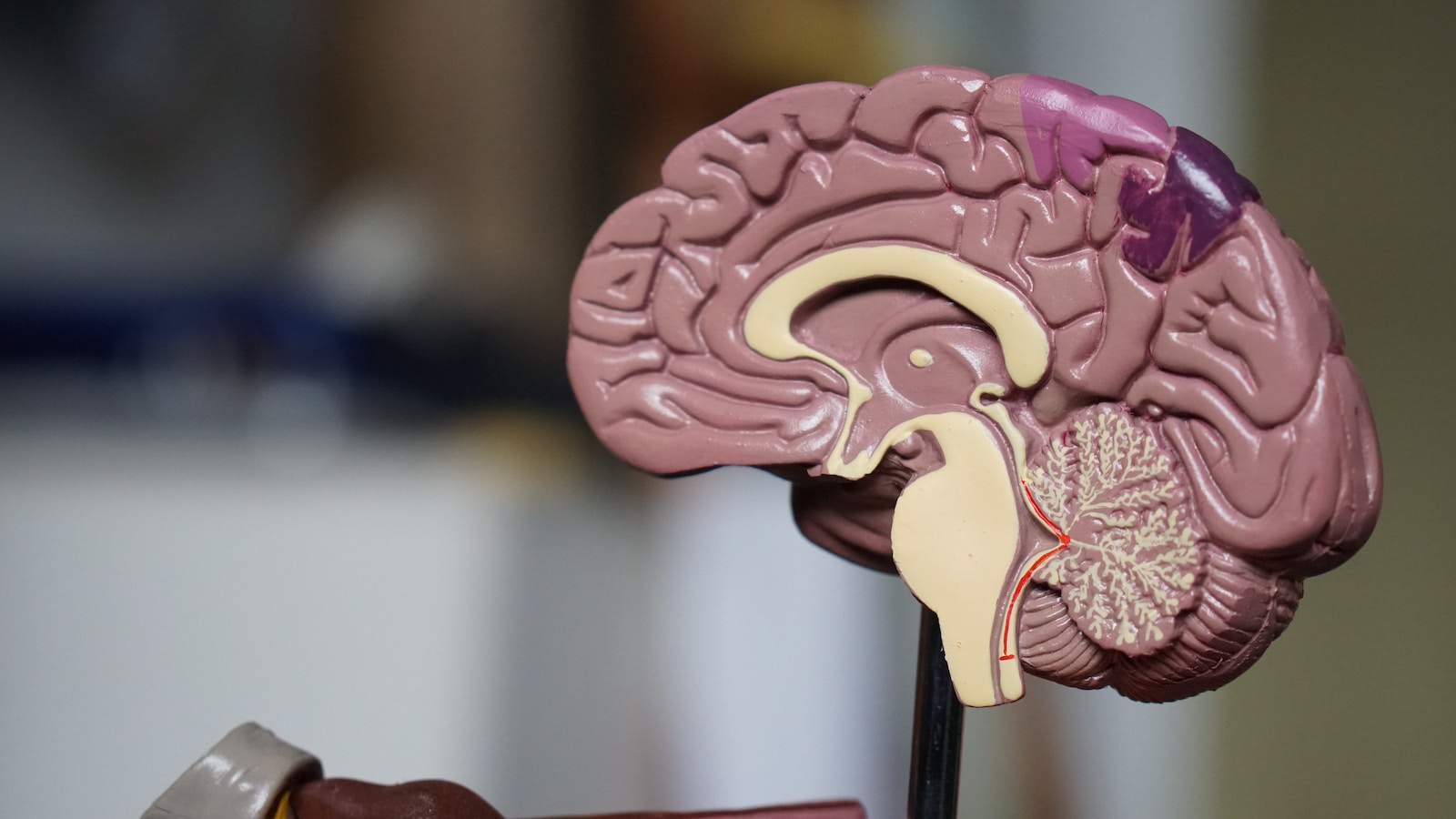The human gut, often referred to as the gastrointestinal tract, is a complex and vital system that plays a significant role in our overall health.
It starts from the mouth and extends to the rectum, encompassing organs such as the esophagus, stomach, small and large intestines, and involving accessory organs like the liver and pancreas.
The primary function of the gut is to process food, extract nutrients, and eliminate waste. However, its role extends beyond digestion. The gut houses a vast community of bacteria, known as the gut microbiota, which is crucial for immune system regulation, vitamin production, and even influencing mood and mental health through the gut-brain axis.
An optimal balance in the gut microbiota is essential for good health. When this balance is disturbed, it can lead to various health issues, often manifesting as symptoms of an unhealthy gut. These symptoms are not only confined to the digestive system but can have broader implications for overall health.
The gut’s health is influenced by several factors, including diet, lifestyle, medication, and stress, making it a central focus for those looking to improve their overall well-being. Understanding the symptoms of an unhealthy gut is the first step towards addressing potential issues and fostering a healthier, more balanced gut environment.

What are the symptoms of an unhealthy gut?
Identifying the symptoms of an unhealthy gut is critical for early intervention and management. These symptoms can vary widely, reflecting the complex nature of the gut’s functions. Here are some key symptoms to be aware of:
-
Digestive Issues. One of the most immediate signs of an unhealthy gut is persistent digestive problems. This includes chronic bloating, gas, diarrhea, constipation, or irritable bowel syndrome (IBS). These symptoms indicate that the gut is struggling to process food effectively, potentially due to an imbalance in gut bacteria, food intolerances, or other underlying conditions.
-
Unexplained Weight Changes. Unexpected weight gain or loss without significant changes in diet or exercise routines can be a sign of an unhealthy gut. A poorly functioning gut may impair nutrient absorption, alter fat storage, and impact hunger-regulating hormones, leading to weight fluctuations.
-
Constant Fatigue and Sleep Disturbances. An unhealthy gut can significantly impact sleep patterns, leading to chronic fatigue, sleep disturbances, or insomnia. The gut produces a large portion of the body’s serotonin, a hormone that affects mood and sleep. An imbalance in gut health can disrupt serotonin production, impacting sleep quality.
-
Skin Irritation. Skin conditions such as eczema, acne, or rosacea may be linked to gut health. Poor gut health can cause inflammation that affects the skin, leading to various skin issues. This connection highlights the systemic impact of gut health.
-
Food Intolerances. Difficulty digesting certain foods, resulting in gas, bloating, diarrhea, and abdominal pain, can be a symptom of an unhealthy gut. These intolerances may be due to a lack of good bacteria in the gut, necessary for proper digestion and absorption of food.
-
Autoimmune Conditions. An unhealthy gut can weaken the immune system, potentially leading to autoimmune diseases, where the body attacks itself rather than harmful pathogens. This is due to the critical role the gut plays in immune system regulation.

Potential Causes of Gut Health Issues
The symptoms of an unhealthy gut can often be traced back to several key causes. Understanding these can help in addressing the root of the problem and in formulating effective strategies for improvement.
Here are some common causes:
-
Dietary Factors. The food we consume plays a crucial role in determining gut health. Diets high in processed foods, sugars, and saturated fats can negatively impact the gut microbiota, leading to an imbalance. Lack of fiber can also contribute to digestive issues like constipation. On the other hand, a diet rich in whole foods, fiber, and diverse nutrients supports a healthy gut.
-
Lifestyle Choices. Lifestyle factors such as high stress, lack of sleep, and minimal physical activity can adversely affect gut health. Chronic stress can alter the gut’s permeability, potentially leading to conditions like leaky gut syndrome. Regular physical activity and adequate sleep are essential for maintaining a healthy gut.
-
Medications. Certain medications, particularly antibiotics, can disrupt the gut microbiota. Antibiotics, while essential for treating infections, can also kill beneficial gut bacteria, leading to an imbalance. Long-term use of other medications like NSAIDs and proton pump inhibitors may also have adverse effects on gut health.
-
Alcohol and Smoking. Excessive alcohol consumption and smoking are harmful to the gut. They can cause inflammation and damage to the gut lining, disrupt the balance of gut bacteria, and increase the risk of gastrointestinal diseases.
-
Chronic Illnesses. Certain chronic conditions, such as diabetes and autoimmune diseases, can impact gut health. These conditions can alter gut motility and microbiota composition, exacerbating gut health issues.
Impact of Lifestyle on Gut Health
Lifestyle choices have a profound impact on gut health. Here’s how certain habits can influence the gut:
-
Diet. A balanced diet, rich in fruits, vegetables, whole grains, and lean proteins, promotes a healthy gut. These foods provide essential nutrients and fibers that support the growth of beneficial gut bacteria. On the other hand, a diet high in processed foods, sugar, and unhealthy fats can lead to an imbalance in gut microbiota, contributing to various gut-related issues.
-
Physical Activity. Regular exercise has been shown to positively influence gut health. It can enhance the diversity and number of beneficial gut bacteria, which is crucial for a healthy digestive system. Exercise also helps in reducing inflammation and managing weight, further supporting gut health.
-
Stress Management. Chronic stress can have a detrimental effect on gut health. It can alter gut motility and secretion, and negatively impact the gut microbiota. Practices such as mindfulness, meditation, and yoga can be effective in managing stress, thus benefiting gut health.
Adopting a lifestyle that supports gut health is essential. It involves not only making healthier dietary choices but also incorporating physical activity and stress management techniques into one’s daily routine.

Practical Tips for Improving Gut Health
Improving and maintaining gut health is achievable through various practical measures. Here are some actionable tips:
-
Diversify Your Diet. Consuming a wide range of fruits, vegetables, legumes, and whole grains can increase the diversity of your gut bacteria. Each type of food supports different types of microbes, so a varied diet is beneficial.
-
Incorporate Probiotics and Prebiotics. Probiotics are beneficial bacteria found in fermented foods like yogurt, kefir, sauerkraut, and kombucha. Prebiotics, on the other hand, are fibers that feed the good bacteria in your gut, found in foods like bananas, onions, garlic, and asparagus. Including these in your diet can help balance the gut microbiota.
-
Stay Hydrated. Drinking sufficient water has numerous health benefits, including for the gut. It helps with digestion and can prevent constipation, ensuring a healthy gut environment.
-
Limit Intake of Harmful Substances. Reducing the consumption of alcohol, quitting smoking, and avoiding excessive use of antibiotics and other medications that disrupt gut flora can significantly improve gut health.
-
Regular Exercise and Stress Management (80 words): Engaging in regular physical activity and practicing stress-reduction techniques like meditation or yoga can positively impact gut health. Exercise can increase gut bacteria diversity, while stress management helps in maintaining gut integrity and function.
Implementing these tips can lead to noticeable improvements in gut health, which in turn can enhance overall health and wellbeing.
Conclusion:
Maintaining gut health is crucial for overall well-being. Recognizing symptoms like digestive disturbances, weight fluctuations, fatigue, skin issues, and food intolerances is vital. Embracing a balanced diet, regular exercise, and stress management can significantly improve gut health, leading to enhanced physical and mental health.
This blog post answers the question of “What are the symptoms of an unhealthy gut“?










